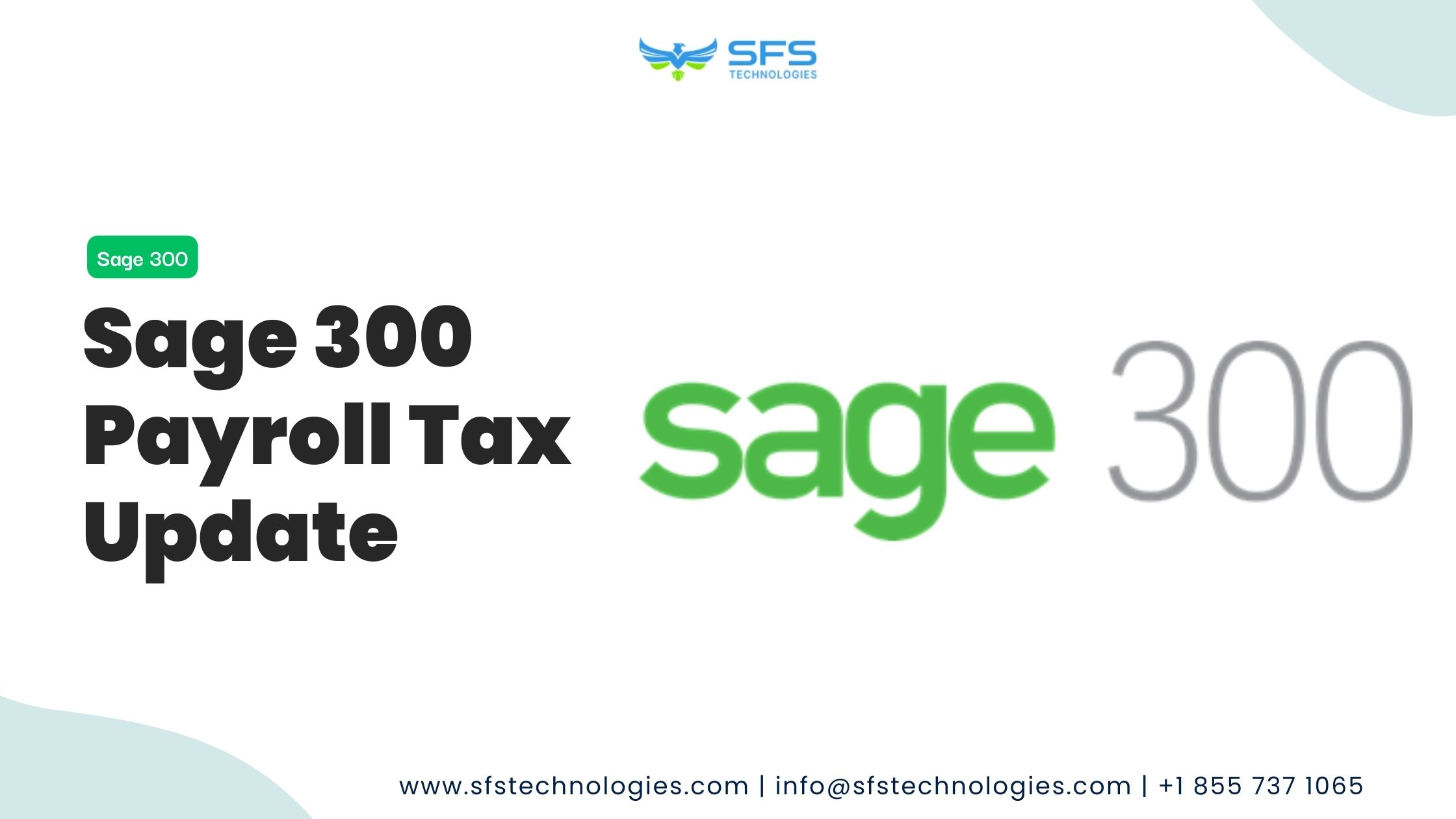
Sage 300 Payroll Tax Update: Staying compliant with tax regulations is essential in payroll management. Sage 300 is a software solution for payroll management with a robust payroll module.
However, it’s essential to understand and implement Sage 300 Payroll Tax updates diligently to ensure seamless compliance and efficiency.
This guide will explore the significance of updates and how they help you maintain compliance and improve your payroll processes. We’ll cover everything you need to know clearly and concisely.
Staying informed about payroll tax updates is essential to ensuring your payroll system is up-to-date with the latest federal, state, and local tax regulations. Non-compliance can lead to severe penalties and legal consequences for businesses.
Sage 300 frequently releases updates to address tax laws, rates, and form modifications. These updates help companies mitigate compliance risks and maintain accuracy in payroll calculations.
It’s essential to quickly update Sage 300 payroll taxes when available to avoid breaking any rules. Not updating taxes on time can lead to mistakes in payroll processing and may result in fines.
It is essential to perform thorough testing before implementing updates in a live environment. This ensures that the updates are compatible with your current payroll setup.
Any issues or discrepancies can be identified and resolved through testing, which helps minimize disruptions to payroll operations.
It is essential to keep your employees informed about any upcoming tax updates that might impact their pay. Clear communication promotes transparency and helps relieve concerns regarding payroll processing.
To maximize Sage 300 updates and streamline payroll processes, payroll administrators and relevant staff must be trained to use new features or functionalities. Comprehensive training ensures users can effectively leverage the software.
Payroll tax updates for Sage 300 ensure correct calculations and compliance with legal requirements, reducing the risk of errors and penalties. These updates use the latest tax regulations and rates.
Up-to-date payroll software can make managing payroll much more accessible. It automates calculations and reporting, so you don’t have to do it manually, saving you time and effort. This software can streamline processes and save valuable resources, making it a significant investment.
Sage 300 continuously improves its payroll module with each update. These improvements make it easier for organizations to manage their payroll operations with features like streamlined workflows, simple interfaces, and advanced reporting capabilities.
Maintaining tax laws and regulations can be challenging as they often change. To help your business keep pace with these changes and avoid compliance risks, Sage 300 offers payroll tax updates that keep your payroll system adaptable.
You can stay ahead of regulatory changes and ensure your business is up to date with the latest tax requirements with these updates.
It’s essential to regularly check for Sage announcements and notifications to stay current with upcoming payroll tax updates. Also, stay informed about any changes in tax legislation that may affect payroll processing.
It’s essential to keep detailed records of all updates to the payroll tax, including dates, version numbers, and related documentation. This helps with audit trails and makes it easier to troubleshoot any issues that may arise.
Before applying any updates, ensure you have a reliable backup of your payroll data. This precautionary measure protects against data loss or corruption during the update process.
If you encounter difficulties or have questions regarding Sage 300 payroll tax updates, utilize available support resources, such as user forums, knowledge bases, and customer support channels.
Prompt assistance can expedite issue resolution and ensure smooth update implementation.
Sage 300 payroll tax updates are essential to ensure your payroll processing is accurate, efficient, and compliant.
By quickly implementing updates, staying up-to-date on regulatory changes, and following best practices for update management, you can streamline payroll operations, mitigate compliance risks, and focus on strategic objectives.
By prioritizing Sage 300 updates as a critical aspect of your payroll management strategy, you can easily navigate the complexities of payroll tax compliance.
If you want to learn more about Sage 300, contact our Sales team at +1 855 737 1469 or email [email protected].
Reach out to us today to talk about how we can turn your software vision into a reality.